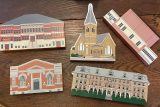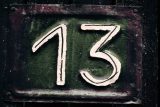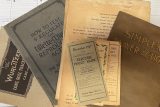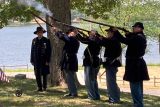How It Was: 1835-1838
General
Posted by: Director
2 years ago
From the Annuals of the Thaddeus – Spring 1982
I appear before you not as an orator or public speaker but as an old settler and to tell you of a few of the incidents that occurred in the early settlement of this county.
We crossed the Ohio River at Marietta, thence to Zanesville and Columbus and to Indianapolis, thence to Logansport. Here we called a halt, for the question had to be settled whether we went to Illinois or stopped in Indiana. We stopped, rested a day, concluded to turn aside and go to Turkey Creek Prairie, a land we had heard flowed with milk and honey. We next made Rochester or what was then called the Potawatomie Mills; we thence struck up the Tippecanoe River. At our camping time for the night, we overtook James Comstock and family. We traveled together across the Tippecanoe River, somewhere crossed the Shaking Prairie, drove on to Turkey Creek Prairie at Galveston, and did shouts of praise to God that our journey was so near to the end. We were tired and weary. We had been on the road just one month, for this was the first day of May. Just think of it – 30 days camping out at night, sleeping on the ground and in our wagons.
The prairie land was all taken up, held by preemptor; and my father thought that land where trees would not grow was no good. So we spent several days looking around for a location. As I told you, we had met up with the Comstock family. They were going to settle south of the Tippecanoe River and had engaged to have a cabin built the fall before by Mr. Kelly. My father concluded to go and see Comstock south of the river. He went, and Comstock and Kelly spent a day with him looking for a location. He selected a quarter section north of Comstock, cut his name on a beech tree, went for his family, next day drove over the river to his tree; and we camped in the woods, feeling ourselves at home. This was the tenth day of May, 1835.
Next morning we commenced cutting logs for a house with all possible speed. We cut young linn trees, split the logs, put the flat side in, peeled off the bark, and covered the house with the bark, split the same kind of logs for a floor, built a chimney out of sticks and mud, and a hearth out of dirt and mud. In two days our house was ready to move into. We moved into it with thankful hearts to think we had a home.
Next morning we commenced to clear a field for corn and potatoes and garden truck. We kept them woods asmoking with the burning logs and brush. Every child that could pick up a chip or stick was at it until we got three or four acres planted in corn and potatoes, turnips, pumpkins, and all kinds of truck. We have never seen things grow so fast.
By this time, there had arisen a new trouble we had not counted on. It was this: the woods swarmed and roared with flies and mosquitoes, great big green-headed horse flies, millions of deer flies – they were about to eat up our horses – flies and mosquitoes in the daytime and mosquitoes at night. We were compelled to build a booth for them by putting down forks and poles across and then covering it with brush so as to make it dark as night. The pasture for horses and cattle was good. We had to fight the flies and mosquitoes with smoke continually. In the fall we all got the ague. It was the real old shaking ague. It liked to shook us to death.
There are circumstances which I must pass over. In 1836 we had quite a good field clear for corn. We had never seen such tall corn, great big ears. But all was not serene and pleasant. There had another annoyance arisen. The family one-half mile south of us was so anxious to make money that they went to selling the Indians whiskey. The woods swarmed with drunk Indians and squaws.
They would lose their blankets and shawls, bells and knives and trinkets, and come back to hunt them a week afterwards. They never carried guns but always carried their knives. They would have drunken fights among themselves, stab and cut, but were usually peaceful with the whites. There was here at least fifty Indians to one white man. At that time, their trail from their village to the whiskey went right by our door.
I must relate a circumstance late in the summer of 1836. My father, brother, John, and I had gone a mile east to Eagle Lake to make hay. We had eaten our dinner, got up to go to work. My father saw something bobbing up and down in the grass. Soon saw it was my brother, David, come running. He said, “There is a gang of drunk Indians at the house. They are going to kill Mother.” My father did not wait for further news but, gun in hand, jumped on a horse, took my brother on behind him, and as fast as that horse could carry him he went. My brother John and myself on the other, followed.
When my father got home, he found a gang of drunken Indians lying around in the yard, and my mother standing in the door with a big iron fire shovel drawn over the head of a big Indian, who stood before her with a big knife in his hand. My father, with his gun in hand, motioned them away. They said they wanted bread.
The woods abounded with game, deer, squirrel, pheasants, turkeys, coons, porcupines, wild fruits in abundance, blackberries, huckleberries, and gooseberries. Lake in the fall this year, 1836, we got out of bread stuff. My father sent me to Syracuse to the mill with one and one-half bushels of corn on horseback. There was a corn cracker mill there. I forded the Tippecanoe River near Warner’s Mill. The water was midsides of my horse. I went through wood to Turkey Prairie, thence through Leesburg, and to Syracuse. It took me three days to make the trip.
1837 was the most trying year of all. My mother died the 12th of June that year, my infant sister five months later. A family of eight children and no mother. The day after my mother was buried, my father and several of the neighbors started to LaFayette for corn and provisions, left us children there in the woods, told me to shoot squirrel and pheasants and, if we got out of something to eat, dig up the potatoes we had planted. He was gone about ten days. In 1837, I saw my father pay twenty dollars for one side of bacon. We had plenty of wild meat and fish, but no lard. In 1838, I hired out as post boy to carry the mail on horseback from Peru to Lima in LaGrange County. It took me five days to make the trip. There were but three houses between Warsaw and Eel River. I had to ford Eel River; it would almost swim my horse. The road near Indian Trail I had to travel, often meeting Indians. Kept busy fighting flies and mosquitoes.
This account, spanning the years 1835 and 1838 in Kosciusko County, was written by Ehud Webb, son of Daniel Webb and Lavica Rhodes. He was born in Harrison County, West Virginia (then Virginia) in November 1821 and died in Warsaw, Indiana, in July, 1896. His profession was wood turning and chair making and, later, farming. He was the great-grandfather of Marilyn Schuelzky, by whose permission we print this fascinating and valuable account of early life in the county.
Become a Member Today!
Memberships at a variety of levels are available. We hope you consider supporting the Kosciusko Historical Society by purchasing a membership.



